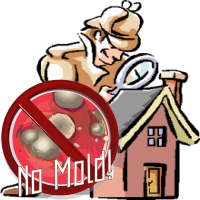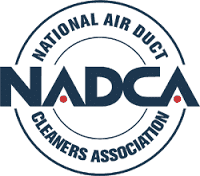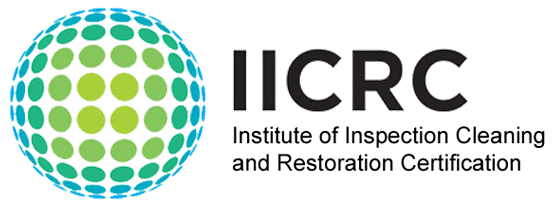Contractors, Facility Managers, Commercial Property Owners:
Ask a Mold Expert: What Do I Use to Kill Mold on a Roof?
 We often get some very interesting questions from our members, and others in the building
and construction community. We recently were posed one that we believe would be helpful for the public. A roofing
contractor recently sent us this message:
“I saw your article about
sodium hypochlorite not killing mold on asphalt roofing by Doug Hoffman. I am a soft washing and roof-washing
contractor. I was never taught that it was mold on a roof. I always thought it was lichen, algae, and moss.
Further, he said to use a biocide, and chlorine is one. Can I get some clarity on this? Who was told or tested
roofing materials to see if the black streaks where mold? And if not mold why will chlorine not kill moss,
lichen, and algae? Finally I read that chlorine will kill mold on non porous surfaces but it will not kill mold
on porous surfaces?”
Our Executive Director, Doug Hoffman, had this to say in
response:
“Great question! All of the chemistries that are approved
by the EPA to kill mold (fungus) are registered with the EPA as pesticides. In fact, the LA Dept. of Agriculture
requires licensed specialists of mold remediation San Antonio to also carry a pesticide ground-applicators
license because, again, what they are using are pesticides. Sodium Hypochlorite is registered with the EPA as a
disinfectant because it is good, as a sanitizer, on hard surfaces but will not adequately penetrate the mold to
kill the “bio-slime” and actually eliminate it from growing. If you read the use instructions, it’s incredibly
toxic and requires some dwell time to actually kill any of the microbiologicals it can address.
In 2004, Oregon State University performed A study
to address this issue, and determined
exactly what I wrote in “Mold-Free Construction” five years earlier (the first edition). Bleach will affect the
discoloration (making it look like it disappeared) but will not actually kill the mold. Even when you add
detergent and high levels of surfactants, it simply will not penetrate the mold. That’s why bleach should never
be used on mold remediation projects either…people have been slow to come to the table but the science is
proving this position to be right!
In regards to what is actually growing on the roof, that
varies significantly based on geography. Moss is really bad in the Northwest US while mold is worse in the
Southern states. Here’s the fact that needs to be considered: any microbiological contaminant will feed on the
DIRT that is accumulating on the roofing system (from acid rain, settled dust, etc.) and, under the right
conditions, its roots (depending on the type of mold) could grow into the shingle (especially asphalt shingles
that have a lot of fillers in them and very little asphalt or petro product). Killing that growth is paramount
to extending the life and improving the appearance of virtually any roofing system (even tile) and using a
pesticide with surfactants that actually will penetrate that growth is best, by far!
BTS, I love the concept of “soft washing” (which is what
we did with our company) to maintain the integrity of the ballast and protect the shingle from UV. BUT,
experience has shown over and over again that bleach will only make it go “clear” and then it will reappear with
a vengeance.”
Source:The National Organization of
Remediators and Mold Inspectors (NORMI)
Note: Aspen Environmental Services recommends using a licensed and trained
professional for testing and removal of mold on a roof or elsewhere for two main reasons: 1) to make sure
that the mold is removed and won’t come back and 2) to protect against the use of toxic chemicals, which can
be dangerous in the hands of non-professionals.
Aspen Environmental professionals are licensed and insured and members of the
National Organization of Remediators and Mold Inspectors (NORMI), the National Air Duct Cleaners Association (NADCA), and the Institute of Inspection
Cleaning and Restoration Certification (IICRC).
We often get some very interesting questions from our members, and others in the building
and construction community. We recently were posed one that we believe would be helpful for the public. A roofing
contractor recently sent us this message:
“I saw your article about
sodium hypochlorite not killing mold on asphalt roofing by Doug Hoffman. I am a soft washing and roof-washing
contractor. I was never taught that it was mold on a roof. I always thought it was lichen, algae, and moss.
Further, he said to use a biocide, and chlorine is one. Can I get some clarity on this? Who was told or tested
roofing materials to see if the black streaks where mold? And if not mold why will chlorine not kill moss,
lichen, and algae? Finally I read that chlorine will kill mold on non porous surfaces but it will not kill mold
on porous surfaces?”
Our Executive Director, Doug Hoffman, had this to say in
response:
“Great question! All of the chemistries that are approved
by the EPA to kill mold (fungus) are registered with the EPA as pesticides. In fact, the LA Dept. of Agriculture
requires licensed specialists of mold remediation San Antonio to also carry a pesticide ground-applicators
license because, again, what they are using are pesticides. Sodium Hypochlorite is registered with the EPA as a
disinfectant because it is good, as a sanitizer, on hard surfaces but will not adequately penetrate the mold to
kill the “bio-slime” and actually eliminate it from growing. If you read the use instructions, it’s incredibly
toxic and requires some dwell time to actually kill any of the microbiologicals it can address.
In 2004, Oregon State University performed A study
to address this issue, and determined
exactly what I wrote in “Mold-Free Construction” five years earlier (the first edition). Bleach will affect the
discoloration (making it look like it disappeared) but will not actually kill the mold. Even when you add
detergent and high levels of surfactants, it simply will not penetrate the mold. That’s why bleach should never
be used on mold remediation projects either…people have been slow to come to the table but the science is
proving this position to be right!
In regards to what is actually growing on the roof, that
varies significantly based on geography. Moss is really bad in the Northwest US while mold is worse in the
Southern states. Here’s the fact that needs to be considered: any microbiological contaminant will feed on the
DIRT that is accumulating on the roofing system (from acid rain, settled dust, etc.) and, under the right
conditions, its roots (depending on the type of mold) could grow into the shingle (especially asphalt shingles
that have a lot of fillers in them and very little asphalt or petro product). Killing that growth is paramount
to extending the life and improving the appearance of virtually any roofing system (even tile) and using a
pesticide with surfactants that actually will penetrate that growth is best, by far!
BTS, I love the concept of “soft washing” (which is what
we did with our company) to maintain the integrity of the ballast and protect the shingle from UV. BUT,
experience has shown over and over again that bleach will only make it go “clear” and then it will reappear with
a vengeance.”
Source:The National Organization of
Remediators and Mold Inspectors (NORMI)
Note: Aspen Environmental Services recommends using a licensed and trained
professional for testing and removal of mold on a roof or elsewhere for two main reasons: 1) to make sure
that the mold is removed and won’t come back and 2) to protect against the use of toxic chemicals, which can
be dangerous in the hands of non-professionals.
Aspen Environmental professionals are licensed and insured and members of the
National Organization of Remediators and Mold Inspectors (NORMI), the National Air Duct Cleaners Association (NADCA), and the Institute of Inspection
Cleaning and Restoration Certification (IICRC).
Contact Aspen for anything related to water damage cleanup, mold testing, mold removal, or air ducts: Call 978.328.0882 or email [email protected].



